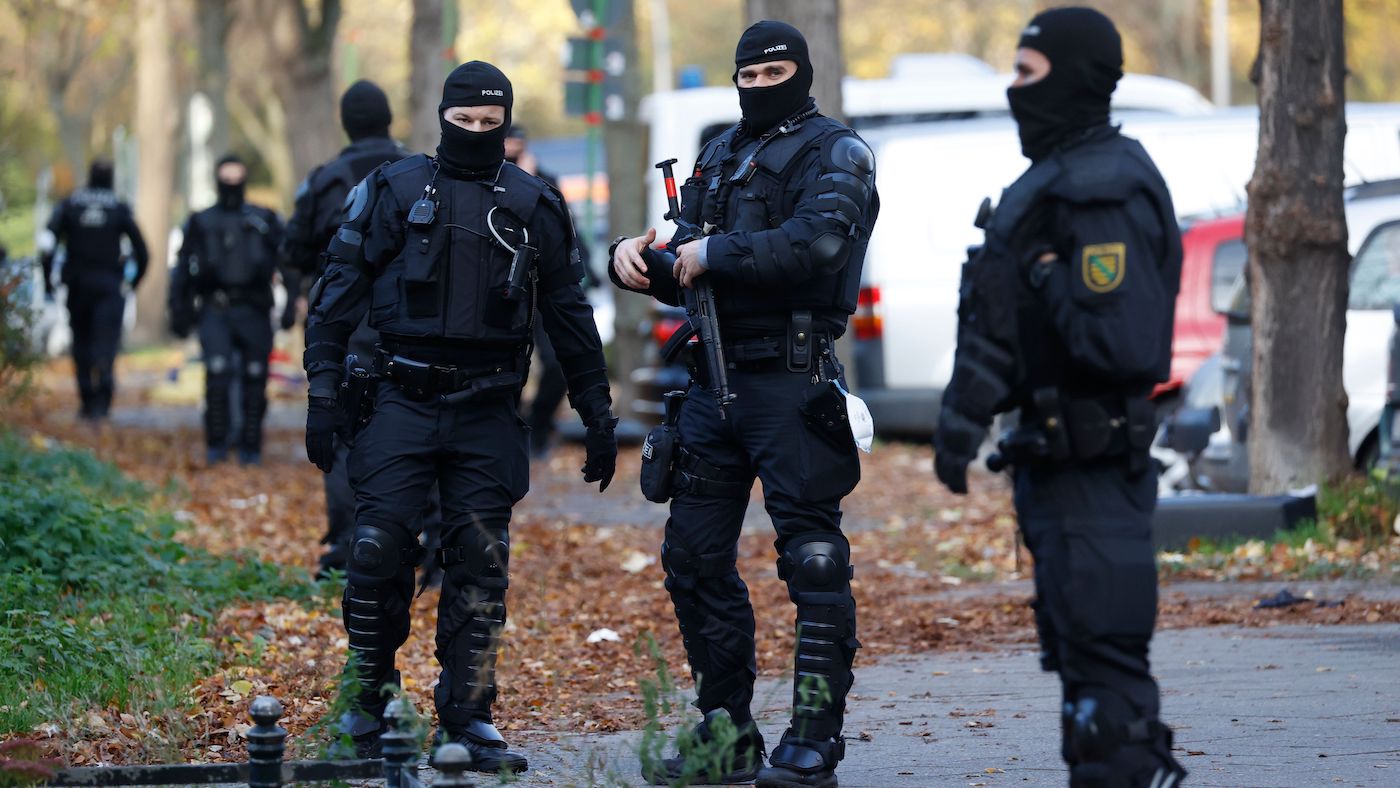Dozens arrested over plot to overthrow German government
Police raided 130 locations across Germany and also detained suspects in Italy and Austria

A free daily email with the biggest news stories of the day – and the best features from TheWeek.com
You are now subscribed
Your newsletter sign-up was successful
German police have arrested 25 alleged members of a far-right terrorist group accused of plotting to overthrow the government and install a prince as national leader.
The federal prosecutor's office said more than 3,000 police officials and security force officials had been involved in raids on 130 locations across 11 German federal states. The detained suspects included Prince Heinrich XIII, a “minor aristocrat” who is “alleged to have been central” to the plot, said the BBC.
The prince is said to have been part of a group of “far-right and ex-military figures” who planned to “storm the parliament building, the Reichstag, and seize power”, the broadcaster reported. According to Die Welt, the plotters allegedly believe in a litany of “conspiracy myths and narratives”, including those of QAnon, and were “convinced that Germany was governed by a secret society”.
The Week
Escape your echo chamber. Get the facts behind the news, plus analysis from multiple perspectives.

Sign up for The Week's Free Newsletters
From our morning news briefing to a weekly Good News Newsletter, get the best of The Week delivered directly to your inbox.
From our morning news briefing to a weekly Good News Newsletter, get the best of The Week delivered directly to your inbox.
Some of the members were said to belong to the extremist Reichsbürger [Citizens of the Reich] movement, which has an estimated total of “21,000 adherents”, German intelligence told news agency DPA.
Prosecutors said the detained suspects were believed to have spent the past year “procuring equipment, recruiting new members and holding shooting lessons”, and that the recruitment drive was focused on “members of the military and police officers”. Reuters reported that “one active soldier and several reservists are among those being investigated”.
The ultimate aim of the group was allegedly to establish a state “modelled on the Germany of 1871 – an empire called the Second Reich”, said the BBC.
The coup plotters had reportedly “already selected who would be in charge of various ministries within the new government”, which was to be led by Prince Heinrich XIII, said the Daily Mail.
A free daily email with the biggest news stories of the day – and the best features from TheWeek.com
A total of 22 German citizens were detained on suspicion of “membership in a terrorist organisation”. Two further arrests were made in Austria and Italy, and a Russian citizen was also detained, on suspicion of supporting the group.
Richard Windsor is a freelance writer for The Week Digital. He began his journalism career writing about politics and sport while studying at the University of Southampton. He then worked across various football publications before specialising in cycling for almost nine years, covering major races including the Tour de France and interviewing some of the sport’s top riders. He led Cycling Weekly’s digital platforms as editor for seven of those years, helping to transform the publication into the UK’s largest cycling website. He now works as a freelance writer, editor and consultant.
-
 The Week Unwrapped: Have televised confessions quelled protests in Iran?
The Week Unwrapped: Have televised confessions quelled protests in Iran?Podcast Plus, why has Elon Musk turned from Mars to the Moon? And will the BBC prove to be a puzzles champ?
-
 The week’s best photos
The week’s best photosIn Pictures An Andean god, a rogue squirrel, and more
-
 AI surgical tools might be injuring patients
AI surgical tools might be injuring patientsUnder the Radar More than 1,300 AI-assisted medical devices have FDA approval
-
 Epstein files topple law CEO, roil UK government
Epstein files topple law CEO, roil UK governmentSpeed Read Peter Mandelson, Britain’s former ambassador to the US, is caught up in the scandal
-
 Iran and US prepare to meet after skirmishes
Iran and US prepare to meet after skirmishesSpeed Read The incident comes amid heightened tensions in the Middle East
-
 Israel retrieves final hostage’s body from Gaza
Israel retrieves final hostage’s body from GazaSpeed Read The 24-year-old police officer was killed during the initial Hamas attack
-
 China’s Xi targets top general in growing purge
China’s Xi targets top general in growing purgeSpeed Read Zhang Youxia is being investigated over ‘grave violations’ of the law
-
 Panama and Canada are negotiating over a crucial copper mine
Panama and Canada are negotiating over a crucial copper mineIn the Spotlight Panama is set to make a final decision on the mine this summer
-
 Why Greenland’s natural resources are nearly impossible to mine
Why Greenland’s natural resources are nearly impossible to mineThe Explainer The country’s natural landscape makes the task extremely difficult
-
 Iran cuts internet as protests escalate
Iran cuts internet as protests escalateSpeed Reada Government buildings across the country have been set on fire
-
 US nabs ‘shadow’ tanker claimed by Russia
US nabs ‘shadow’ tanker claimed by RussiaSpeed Read The ship was one of two vessels seized by the US military